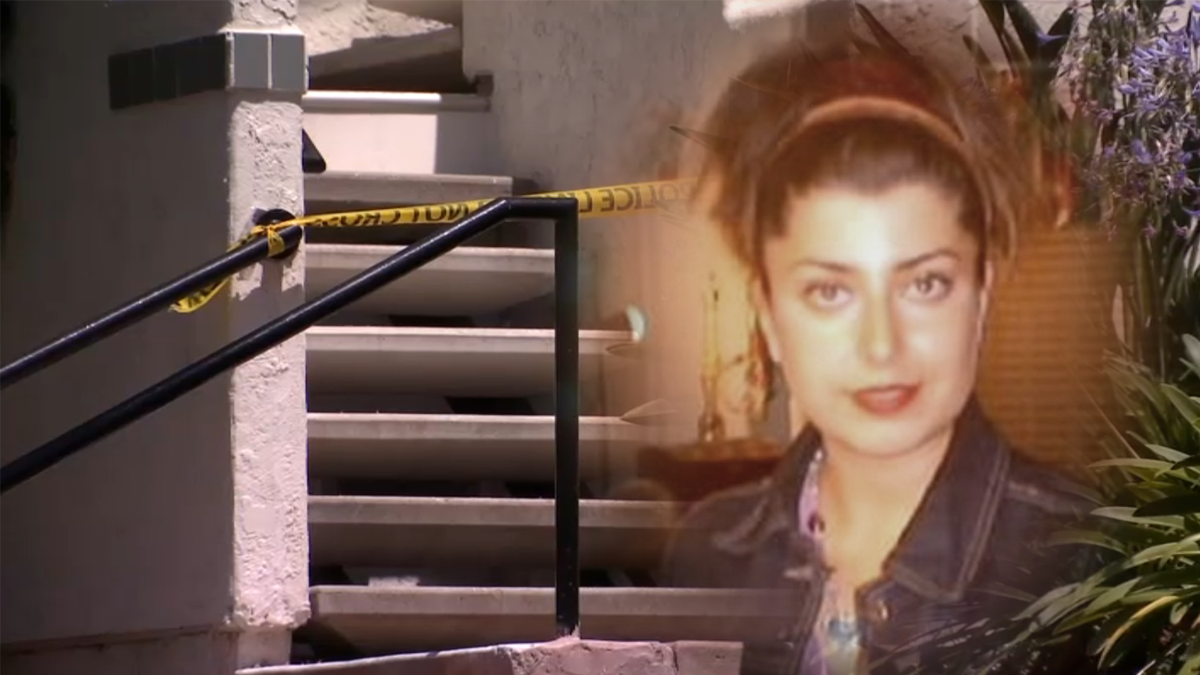The man accused of killing a woman inside her condo on June 14, 2022, took the stand in his own defense Tuesday.
Parrish Chambers Jr. has pleaded not guilty to murdering Connie Dadkhah, saying that he never intended for her to die while admitting the pair had a three-year-long abusive relationship, in which methamphetamine played a central role.
Chambers took the stand as the defense’s third witness after the prosecution rested its case Tuesday morning.
“Did you plan on killing Ms. Dadkhah?” Chambers’ public defender Abe Genser asked.
“No,” Chambers replied.
Genser’s narrative of the killing isn’t that Chambers isn’t responsible but that his client was blackout drunk. He says Chambers doesn’t remember climbing Dadkhah's balcony, smashing his way inside through a sliding glass door and then assaulting her.
“I don’t remember breaking no window,” Chambers testified. "I was wasted man!”
Instead, he says the two reconciled after the attack, had sex and did drugs together. In fact, he says Dadkhah died from a drug overdose, not a brain bleed as a deputy San Diego County Medical Examiner testified.
Genser walked his client through more than a dozen text messages that he said showed the pair were in a romantic relationship. That detail has been in contention, with another witness testifying that Chambers stalked and harassed Dadkhah.
The texts had messages where both expressed love for one another, terms of endearment and comments expressing how they missed one another. The message evidence showed timestamps over the past two years, some just days before Dadkhah was killed.
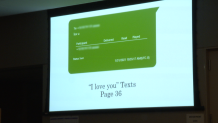
Chambers then admitted that he’d been a methamphetamine user for 20 years, describing himself and Dadkhah as addicts. He described how they purchased and used drugs during their relationship. He says Dadkhah used it to deal with her anxiety.
“It would be before work, any kind of household chores, shopping, domestic things like that,” Chambers testified.
Genser then questioned Chambers about physical and emotional abuse, saying Dadkhah was often behind it.
“Like a slap or a punch every now or then, or something thrown with no harm intended, or just to get my attention to let me know she was serious,” Chambers said,
“Prior to June 14, did you ever punch her?” Genser asked.
“No,” Chambers answered.
Chambers was subjected to more than an hour of blistering cross-examination from deputy district attorney Martin Doyle, who tried to paint Chambers as a liar. He noted several statements Chambers made to police the day after Dadkhah was found dead and how different they were compared to what he said Tuesday on the stand. In one example, Chambers told police he did not drink alcohol the night of the killing.
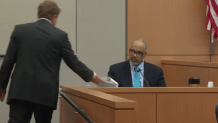
“Why would you tell police you didn’t blackout if you did?” Doyle asked.
“I think I probably didn’t know I was blacked out,” Chambers responded.
Chambers then said he lied to police during questioning, saying he stopped cooperating after realizing that he was the prime murder suspect.
“I felt harassed when I was getting accused,” Chambers said. “When they’re telling me I’m the one who did this and did this, and yeah I felt harassed.”
Chambers never directly admitted that he killed Dadkhah, but at times admitted the evidence created an unsettling realization about what happened.
“I’m not proud about the things that I’ve discovered,” Chambers said. “I had to black out after hearing all this evidence. Because how could I not know nothing? How could I have no memory on how the outcome turned out in this situation?”
Attorneys spar over the relevance of crime statistics
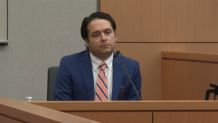
Earlier in the day, another witness for the defense sparked repeated objections from the prosecution over the inclusion of statistics related to domestic violence. The prosecution disagreed with the use of statistics to draw conclusions about any singular case.
“I object to the entire line of questioning. It’s completely irrelevant,” Doyle said. “What happened in other cases, in other circumstances, has no bearing on what happened in this one.”
The defense questioned statistician Robert Valadez about the probability of death from those incidents, as a way to rebut testimony from the prosecution. Valadez broke down data about local police callouts for domestic violence. He testified that only .1% of all local domestic violence callouts resulted in a homicide. He said other kinds of deaths were far more likely.
“Like heart disease. That’s one in six. Fatal car accidents. That’s one in 93,” Valadez said. “You’d have to hit tails six out of seven times to get these kinds of odds."
During cross-examination, Doyle highlighted ways that the data could be faulty. For instance, not every police callout is a separate crime if multiple callers are reporting the same incident. He also pointed out that multiple people called 911 to report the break-in to Dadkhah's condo that evening.
“What if multiple people call on the same incident, and the police do nothing? Does that go down as no violence and no homicide having occurred?” Doyle asked.
“I suppose yes,” Valadez answered.
What Doyle referred to has been a point of great scrutiny for the San Diego Police Department’s emergency response.
Click here to read up on what happened during the other days of the murder trial. You can also watch replays of each day's proceedings the weekday after they happen, starting at 11:30 a.m.
Background on the murder case
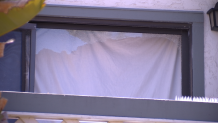
On the morning of June 15, 2022, prosecutors say Parrish Chambers emerged from Dadkhah's condo, spattered with her blood. They say he flagged down a neighbor to call 911 to report that she was dead inside. He was taken into custody soon after and charged with her murder. He’s pleaded not guilty.
Police dispatch records show around 7 p.m. the night before, Dadkhah's neighbors began calling 911. They begged police to get there quickly, reporting that a belligerent man was trying to break into a woman’s condo. Initially, the call wasn’t prioritized. About an hour later, callers had new information to tell dispatchers: the man had scaled a wall to her second-floor balcony and smashed his way inside through a sliding glass door. While police upgraded the call to a higher priority, it took another 45 minutes for officers to arrive at the complex.
Previous coverage:
Those same dispatch records, along with court filings from prosecutors, reveal officers tried to make contact with Dadkhah by calling her phone, knocking on her door and using a loudspeaker. But officers left the scene 15 minutes later after failing to make contact with anyone inside. There’s no record of Dadkhah calling police that night.
In defending their decision not to force entry the night before, police told NBC 7 Investigates they had reason to believe that Chambers lived there. That was based on a dispatch record accessed by responding officers. Police also told NBC 7 the decision to force entry into anyone’s home shouldn’t be taken lightly and is among the highest level of legal standards they operate under.
But Chambers didn’t live there, though NBC 7's investigation revealed a history between the two. Court filings show that included an incident in 2020 where Chambers was convicted of vandalism. The judge ordered Chambers to stay away from Dadkhah. That order was still in effect when Dadkhah died.
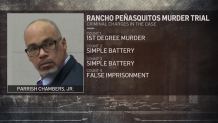
In addition to the murder charge, prosecutors also charged Chambers with three other crimes where they say Dadkhah was his victim. That includes two counts of battery and one count of false imprisonment. He’s pleaded not guilty to those counts as well.


